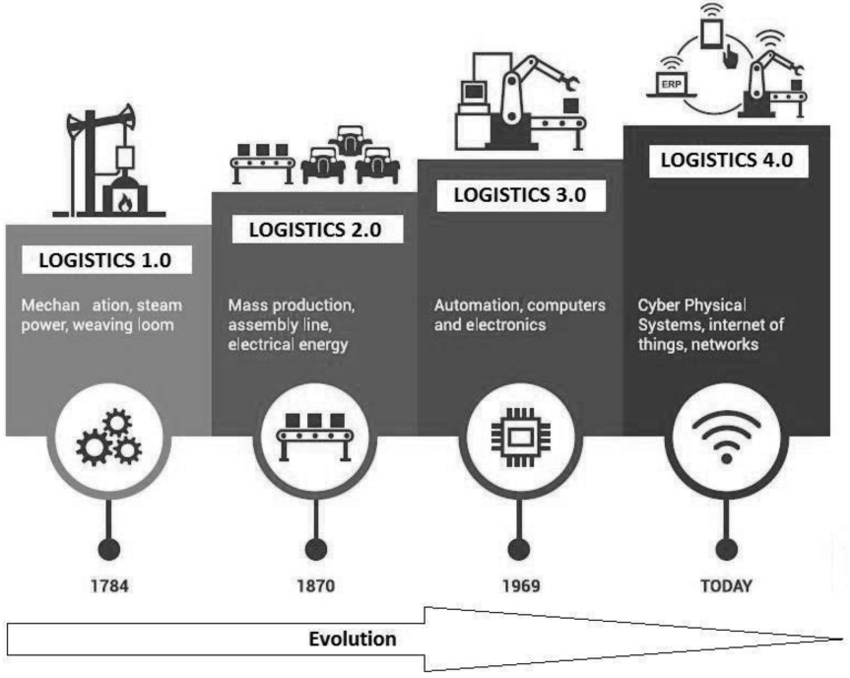Logistics, as an indispensable component of the global economy, has witnessed tremendous growth and change in recent years. As businesses continuously strive to optimize their supply chains, the necessity for skilled logistics professionals has intensified. Consequently, universities have been compelled to adapt their educational offerings in logistics. In this blog, we critically examine the transformation of logistics education in higher institutions, comparing past, present, and future developments in this field. It will incorporated relevant statistics and facts to highlight the implications of these changes on the global supply chain industry.
The past
In the past, logistics education was primarily centered on basic concepts and traditional models, such as inventory management, warehousing, and transportation (Christopher, 2016). This compartmentalized approach often led to suboptimal results, as it failed to recognize the interconnectedness of supply chain components. For instance, a 2012 survey revealed that only 40% of supply chain professionals believed their educational background prepared them adequately for their roles, pointing to the need for curriculum reform (CSCMP, 2012).
The present
Presently, logistics education has shifted towards a more comprehensive and integrated approach. The curriculum now covers various dimensions of logistics, including procurement, production, transportation, and distribution, with increased emphasis on technology and data analytics (Fawcett & Waller, 2014). This is evidenced by a 2019 survey, which found that 72% of universities worldwide have incorporated data analytics courses into their logistics programs (MHL News, 2019). However, despite the integration of sustainability and social responsibility concepts, critics argue that not enough progress has been made towards incorporating the triple bottom line into logistics education (Rodrigue, 2017).
The future
The future of logistics education will be shaped by emerging technologies, such as artificial intelligence, blockchain, and the Internet of Things (Wang, 2020). According to a recent report, 85% of supply chain professionals believe that these technologies will have a substantial impact on the logistics industry within the next five years (Gartner, 2021). Universities must, therefore, adapt their curricula to equip students with the skills required to excel in this digital era. However, critics argue that many universities are slow to incorporate new technologies, raising concerns about the preparedness of graduates for the rapidly evolving industry (Grant, 2018).
Conclusions
To sump up, while the transformation of logistics education in universities has reflected the dynamic nature of the supply chain industry, there are still areas that require improvement. As the focus has shifted from traditional concepts to a more integrated, technology-driven approach, universities must continue to adapt their curricula and teaching methodologies. A critical assessment of the successes and shortcomings of logistics education is necessary to foster innovation, address emerging challenges, and nurture the next generation of logistics professionals.
References
Christopher, M. (2016). Logistics & supply chain management. Pearson UK.
CSCMP (2012). State of logistics education report. Council of Supply Chain Management Professionals.
Fawcett, S. E., & Waller, M. A. (2014). Supply chain game changers – mega, nano, and virtual trends – and forces that impede supply chain design (i.e., building a winning team). Journal of Business Logistics, 35(3), 157-164.
Gartner (2021). Future of supply chain survey. Gartner Research.
Grant, D. B. (2018). Logistics education matters. International Journal of Physical Distribution & Logistics Management, 48(3), 225-239.
MHL News (2019). Universities add analytics to logistics programs. Material Handling & Logistics News.
Rodrigue, J. P. (2017). The geography of transport systems. Taylor & Francis.
Wang, Y. (2020). The application of artificial intelligence in the logistics industry: a review of the literature and future research directions. International Journal of Logistics Research and Applications, 23(5), 401-419.
